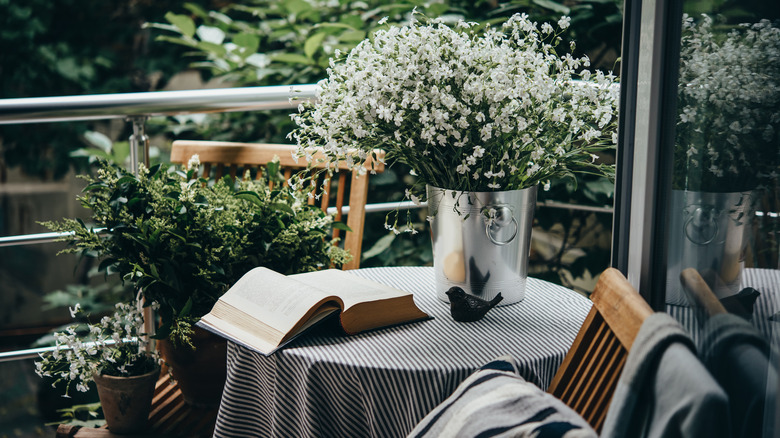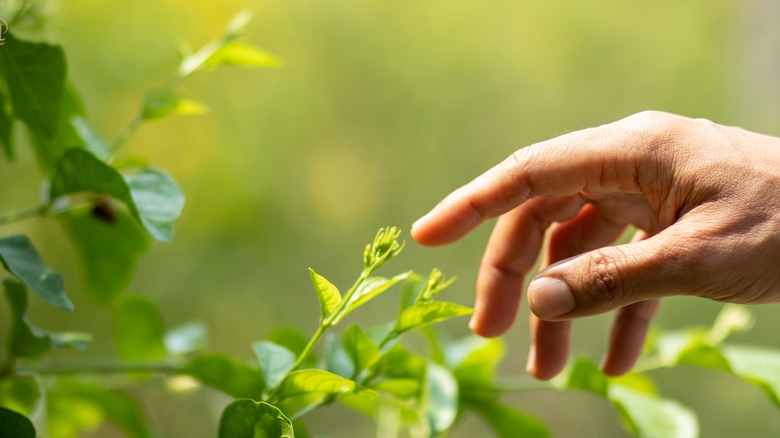The Slow Gardening Method That's Good For Your Mental Health
You've probably heard that gardening is good for your mental health. Gardening has long received positive press for improving mood, memory function, and self-esteem. Spending time outdoors has also been reported to reduce stress, minimize symptoms associated with ADHD, and even lower the risk of dementia.
Recent research suggests that community gardening can improve well-being and reduce the risk of certain chronic diseases. But have you heard about the benefits of the practice of slow gardening? This new concept emphasizes individuals playing an active role in achieving the positive benefits of gardening by taking a mindful approach to the gardening process, focusing on the enjoyment and therapeutic benefits rather than viewing gardening as a chore and trying to grow plants as quickly as possible.
Life is busy, and with the constant grind for efficiency and instant gratification as the norm, it's no wonder this trend is the latest rage. Keep reading to explore this gardening trend's benefits and discover tips on how to incorporate it into your outdoor practices.
How to plan your slow garden experience
To begin your journey into slow gardening, reflect on what you hope to accomplish during the process, such as actual gardening activities, including planting and pruning. But don't stop there. Consider how you can deliberately slow these processes into mindful experiences, like observing how the plants grow and change. For the practical implementation, plan the space where your gardening will take place. It can be indoors or outdoors. Think about the layout, size, and types of plants you'd like to cultivate.
Remember, the key here is quality over quantity. Don't overwhelm the process by choosing too many different plant types or varieties that are difficult to grow. Consider plants that are hardy perennials, and most importantly, know how to purchase the healthiest plants. This is a journey — start small, and like your plants, grow as you go. Also, consider how to incorporate sustainable practices, such as using organic gardening materials and even including an herb or two to enjoy in your favorite recipes. Finally, designate relaxation zones within the garden where you'd like to spend time reading, meditating, or practicing yoga. You can place a small table, rugs, or throw pillows, being mindful that less is more.
Benefits you'll receive from slow gardening
Inspired by the slow food movement, slow gardening promotes a deeper connection with your environment and a deeper appreciation for nature. Over time, this slower approach will allow you to connect with nature in some unexpected ways — maybe you will start to notice weather patterns, become more attuned to the changes within each season, and become observant of the cycles of growth and death.
This deliberate approach to gardening can also help you become more perceptive to the conditions that are most optimal for your plants. For instance, instead of haphazardly watering and fertilizing, you gain a deeper awareness of what your plants actually need and when they need it — possibly even gaining from your garden a greater awareness of how to fight climate change.
By creating a tranquil oasis that nourishes your soul, allow the practices and quiet moments you enjoy in this sacred space to infiltrate other areas of your life. When concluding your time in your slow garden, take with you the relaxation, peace, and memory of the fragrances of nature. Most importantly, take it slow and enjoy the journey.


